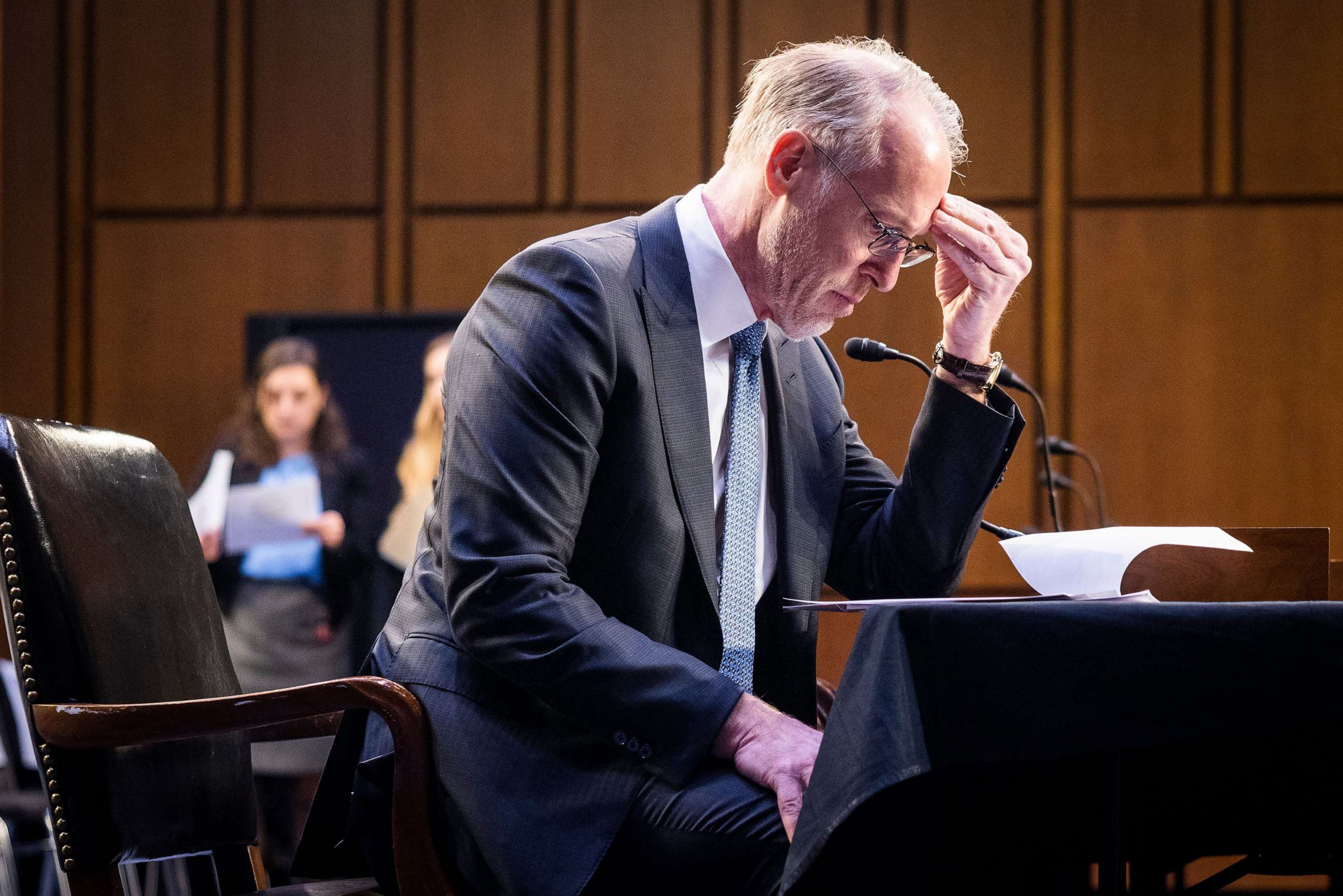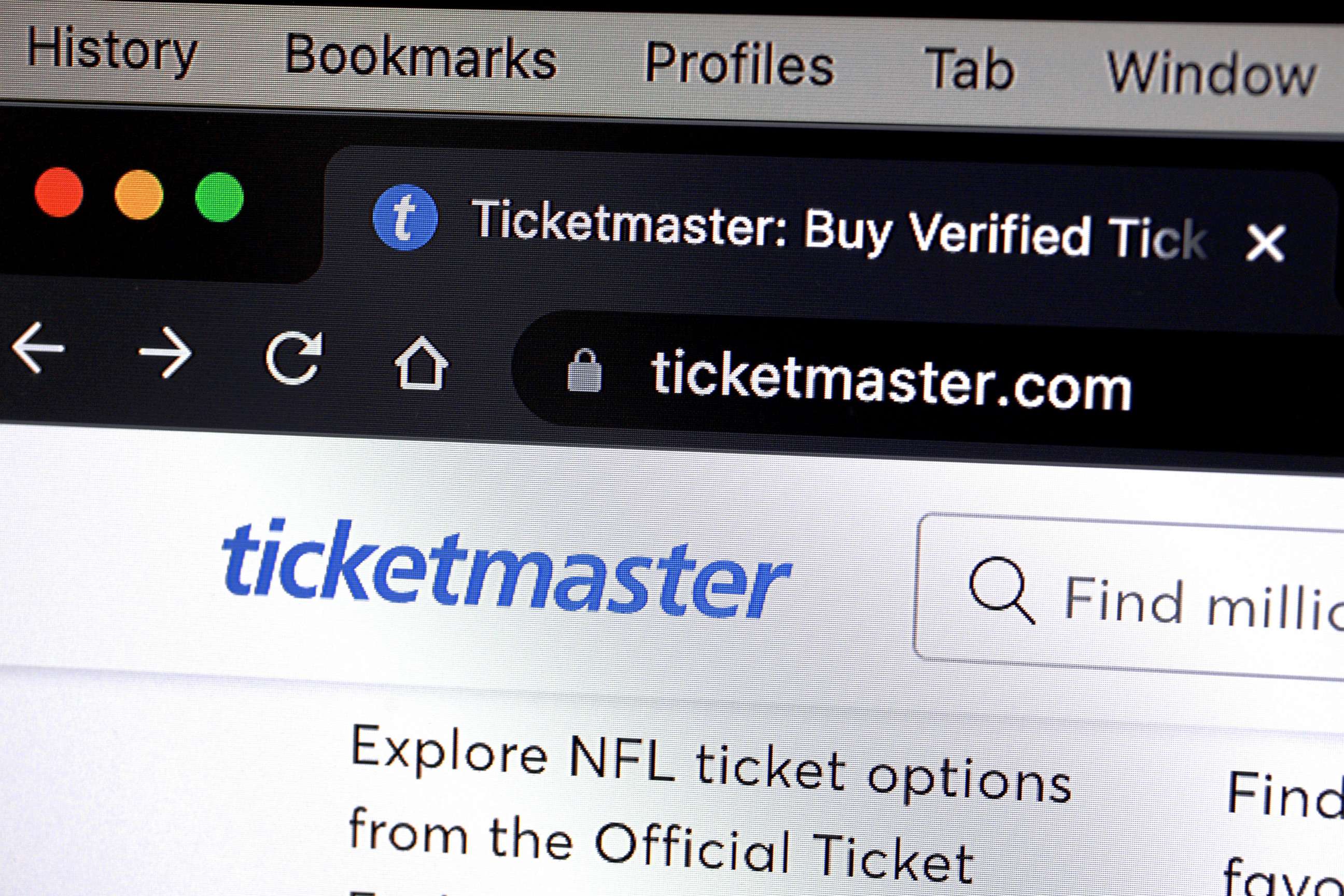Ticketmaster's Taylor Swift ticket fiasco spurs new Senate hearing
It was a Ticketmaster meltdown that sent millions of Taylor Swift fans spiraling: lockouts, delays, hours of confusion and soaring aftermarket prices amid reports of scalpers.
During the November presale for Swift's upcoming "Eras" tour, Ticketmaster was forced to halt purchases for her shows, citing "extraordinarily high demands" and "insufficient remaining ticket inventory," drawing outcry from Swifties -- and the artist herself.
On Tuesday, the mega ticket company faced lawmakers -- with some Swifties demonstrating outside Capitol Hill.
"This garnered a lot of attention in November when Ticketmaster's systems failed during the presale for Taylor Swift's new tour, leaving millions of fans stuck in virtual queues for hours waiting to buy tickets," Sen. Dick Durbin, D-Ill., said to open a Judiciary Committee hearing on the issue. "These issues are symptomatic, I think, of a larger problem. The ticketing and live entertainment markets lack competition and are dominated by a single entity: Live Nation."

In the fall, Ticketmaster said that "every ticket was sold to a buyer with a Verified Fan code."
"While it's impossible for everyone to get tickets to these shows, we know we can do more to improve the experience and that's what we're focused on," the company said then.
Lawmakers at the hearing focused on Live Nation and Ticketmaster's 2010 merger, which has given the company an outsized influence on the market -- with critics highlighting how they can raise ticket prices, shut out smaller venues and smaller artists and sideline rival ticket companies. The merger drew particular scrutiny from some members of Congress on both sides of the aisle in the wake of the Swift ticketing fiasco.
"To have a strong capitalist system, you have to have competition. You can't have too much consolidation," Sen. Amy Klobuchar, D-Minn., said Tuesday. "Something that unfortunately for this country -- as an ode to Taylor Swift, I will say -- we know all too well."
She called Live Nation's conduct the definition of a monopoly -- which the company denied -- and said that American consumers suffer inflated ticket fees due to the lack of competition.
"The live event experience has become increasingly out of reach for so many fans," Klobuchar said. "One GAO [Government Accountability Office] study found that 27% of the ticket price was the fees. A recent study found that for some tickets, it's as high as 75% of face value."

Ahead of the hearing, Klobuchar told ABC News Senior Congressional Correspondent Rachel Scott that "if it's Taylor Swift fans that move some of my colleagues on monopolies, great."
"Some of the things that came out of the Taylor Swift concert were larger than life because it's Taylor Swift. But many of the things were things we've been hearing for years [about ticketing issues], and it's time to take this on. The fees are too high, and there's not enough competition," she said.
Top executives from the ticketing industry appeared in person to testify, including the president and CFO from Live Nation, Joe Berchtold, and competitor SeatGeek CFO Jack Groetzinger.
"The only way to restore competition in this industry is to break up Ticketmaster and Live Nation," Groetzinger told lawmakers.
In his opening statement, Berchtold pointed blame at ticket-scalping, arguing that "breaking the law using bots and cyberattacks to try to unfairly gain tickets contributes to an awful consumer experience."
"There are problems in the ticketing industry -- problems that we believe can and should be addressed through legislation. Many are the direct result of the industrial-scale ticket scalping that goes on today, which is a $5 billion dollar industry in concerts alone and is fueled by practices that run counter to the interests of artists and fans," he said.

The hearing highlighted a conflict over who or what sets ticketing fees. Berchtold, the Live Nation CEO, contended that venues set them, while a singer/songwriter testified that venues often tell his group that Ticketmaster controls the fees.
"With Live Nation not only acting as the promoter but also as the owner and or operator of the venue, it seriously complicates these incentives," said Clyde Lawrence, from the band Lawrence.
Berchtold said that service fees are "retained mainly by the venues -- and their portion of the service fee that Ticketmaster retains has been falling steadily over time."
He added under questioning that Live Nation operates about 200 venues throughout the country, or 5% of venues. In those cases, the ticket-selling company would have a role in setting the service fees, he said.

Lawrence, who said Ticketmaster charged an 82% fee on top of the base ticket price for a show last year, argued that the overwhelming control Live Nation has over the industry leads to lopsided deals.
"Our place is to tell some of the experiences that we have from the unique perspective of artists that are really hands on ... and just talk about some of the ways that we've run into road bumps about trying to get a fair deal for ourselves," Lawrence told Rachel Scott ahead of the hearing.
The musician previously told ABC News that, as one example, they receive no profit from the fees Ticketmaster adds onto tickets: "We have zero say in setting what they are and we have zero participation in any of that money," said bandmate Jordan Cohen.
"We are looking to Live Nation, as the leader of the industry, to just give us a crumb, give us some breadcrumbs. I don't know if the government needs to get involved. That's, again, not our area of expertise," Cohen said. "But we would just hope that the industry leaders make a little bit of change."

In the rare, bipartisan hearing, both Democratic and Republican lawmakers seized the chance to use Swift's popular lyrics in their statements scolding Live Nation.
"Ticketmaster had the temerity to imply that the debacle involved in pre-ticket sales was Taylor Swift's fault because she was failing to do too many concerts," said Sen. Richard Blumenthal, D-Conn. "Ticketmaster outta look in the mirror and say, 'I'm the problem. It's me.'"
"One more Taylor Swift quote," said Sen. Mike Lee, R-Utah, in his closing. "'Karma is a relaxing thought. Aren't you envious that for you it's not?'"
ABC News' Libby Cathey contributed to this report.




